Are you looking for a way to craft the perfect letter of reference for a judicial appointment? You're not aloneâmany find it challenging to articulate their thoughts on a candidate's qualifications and character while adhering to formal expectations. This letter serves as a valuable template to guide you through the process, ensuring your endorsement is both impactful and respectful. Dive into the details with us and discover how to create a compelling reference that can help shape someone's judicial career!
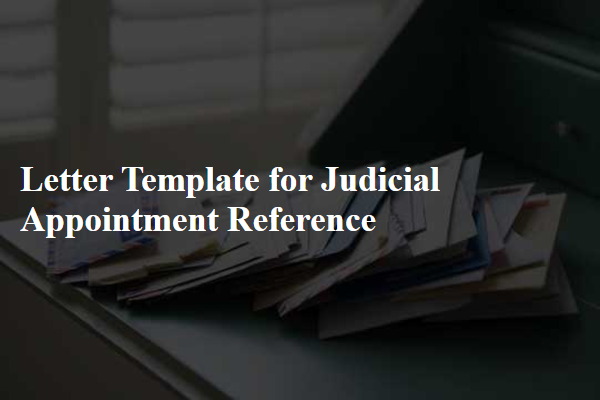
Clear identification of the candidate.
The candidate for judicial appointment, John Smith, possesses a distinguished legal career spanning over 20 years in various capacities, including as a senior partner at the prestigious law firm Smith & Associates in Chicago, Illinois. John graduated with honors from Harvard Law School in 2002 and has served as a federal prosecutor within the United States Attorney's Office for the Northern District of Illinois from 2005 to 2015. His broad legal expertise encompasses criminal law, civil rights cases, and constitutional matters, making him a highly qualified candidate. In addition to his practice, John is an avid contributor to legal scholarship, having authored multiple articles published in reputable journals such as the Harvard Law Review. His commitment to public service is evident through his numerous volunteer efforts, including pro bono representation for underprivileged clients and involvement with local legal aid organizations in the Chicago area.
Specific examples of legal expertise.
An exemplary candidate for a judicial appointment, with extensive legal expertise in corporate law, has successfully argued landmark cases involving corporate governance and securities regulation. Notably, in 2022, this individual represented a prominent Fortune 500 company in a high-profile merger dispute that set a precedent in Delaware law. Their proficiency in constitutional law was highlighted during a significant case concerning civil rights, where their arguments contributed to a favorable ruling from the appellate court. Additionally, this candidate has authored influential articles in legal journals, focusing on the implications of emerging technologies on intellectual property law, showcasing their commitment to advancing legal scholarship. Their reputation for integrity and impartiality has earned them recognition within the legal community, further solidifying their qualifications for judicial service.
Assessment of temperament and integrity.
A judicial candidate's temperament and integrity play crucial roles in their ability to uphold the law impartially. The interaction with colleagues, attorneys, and jurors often reflects a candidate's approach to conflict resolution and decision-making, showcasing traits such as patience, impartiality, and strong analytical skills. Beyond demeanor, integrity is paramount; a candidate must demonstrate an unwavering commitment to ethical standards. This involves transparency in previous rulings and a consistent history of fairness in legal proceedings. Moreover, experience within various court settings, such as trial courts or appellate courts, contributes to a candidate's understanding of the judicial process and enhances their credibility. Engaging in community outreach programs and mentorship initiatives also illustrates a candidate's dedication to justice and public service, reinforcing their role as a valued member of the legal community.
Impactful achievements and contributions.
Achieving significant milestones in judicial appointments requires a blend of competence, integrity, and dedication to the legal profession. Numerous judges have transformed their respective courts, such as the U.S. Supreme Court in Washington D.C., influencing landmark decisions that uphold civil rights and social justice. For instance, Justice Ruth Bader Ginsburg played a pivotal role in gender equality through her opinions in cases like United States v. Virginia (1996), which challenged gender discrimination in education. In lower courts, impactful judges often spearhead initiatives to streamline case management, improving efficiency in jurisdictions such as the Cook County Circuit Court in Illinois. Their contributions extend beyond the bench, engaging in community outreach, legal education, and mentorship programs, fostering the next generation of attorneys in cities like Los Angeles and New York. These achievements underscore the vital role of judges in shaping not only the legal landscape but also enhancing public trust in the judiciary.
Personal endorsement and recommendation.
Judicial appointments require a thorough evaluation of a candidate's qualifications, integrity, and judicial temperament. Extensive background checks typically consider educational achievements from prestigious institutions, such as Harvard Law School, along with professional experiences in various legal arenas, including criminal law, civil rights, or corporate law. The candidate's involvement in landmark cases, like the landmark Supreme Court ruling of Brown v. Board of Education (1954), showcases their capacity for legal reasoning and ethical guidance within the judiciary. Additionally, community engagement initiatives, such as volunteer work with legal aid societies, reflect a commitment to social justice and public service. These attributes collectively illustrate a robust profile suitable for a judicial position within any court system.

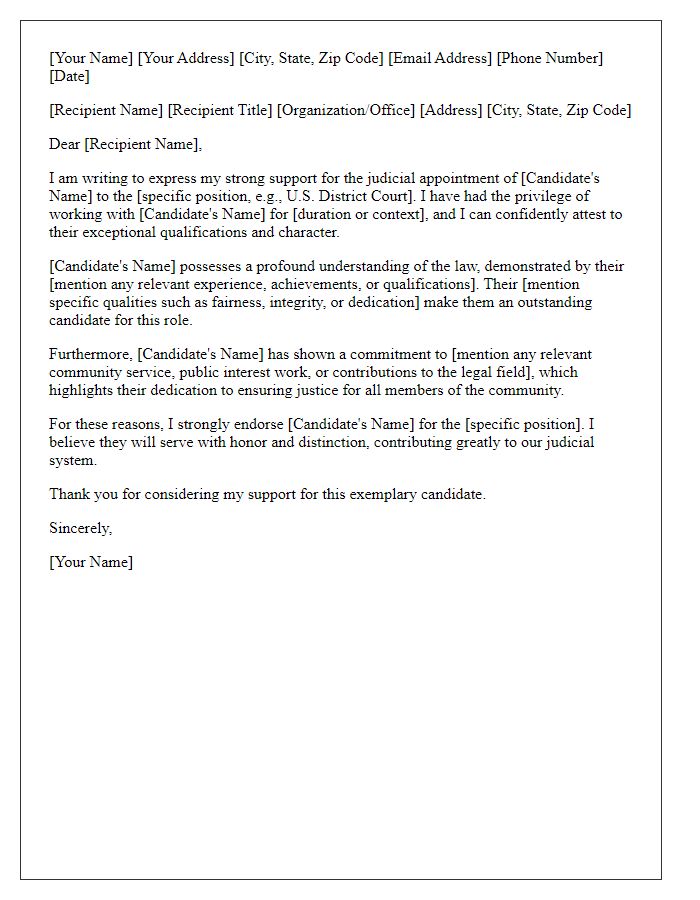
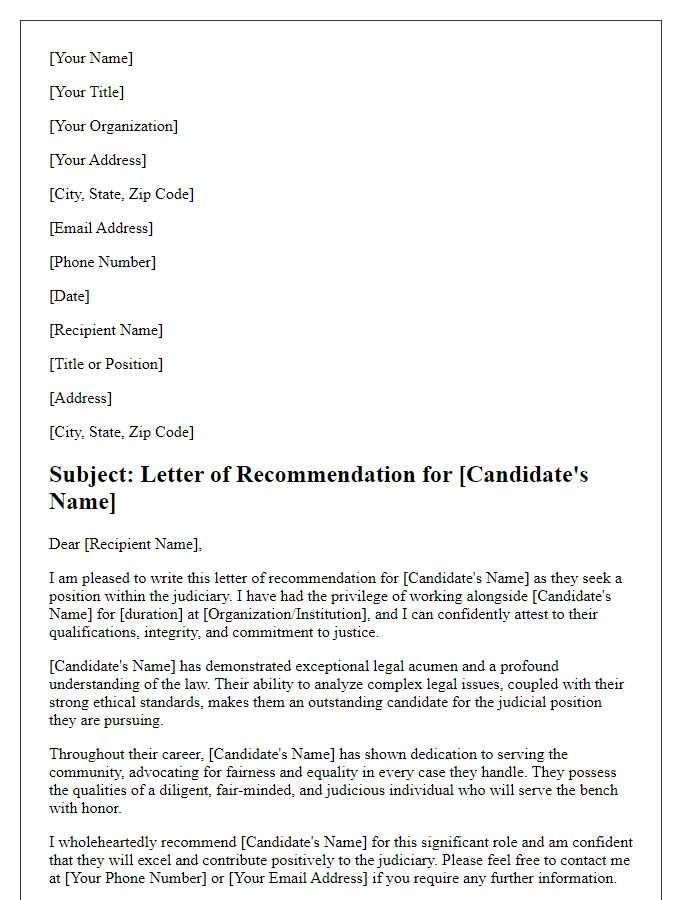
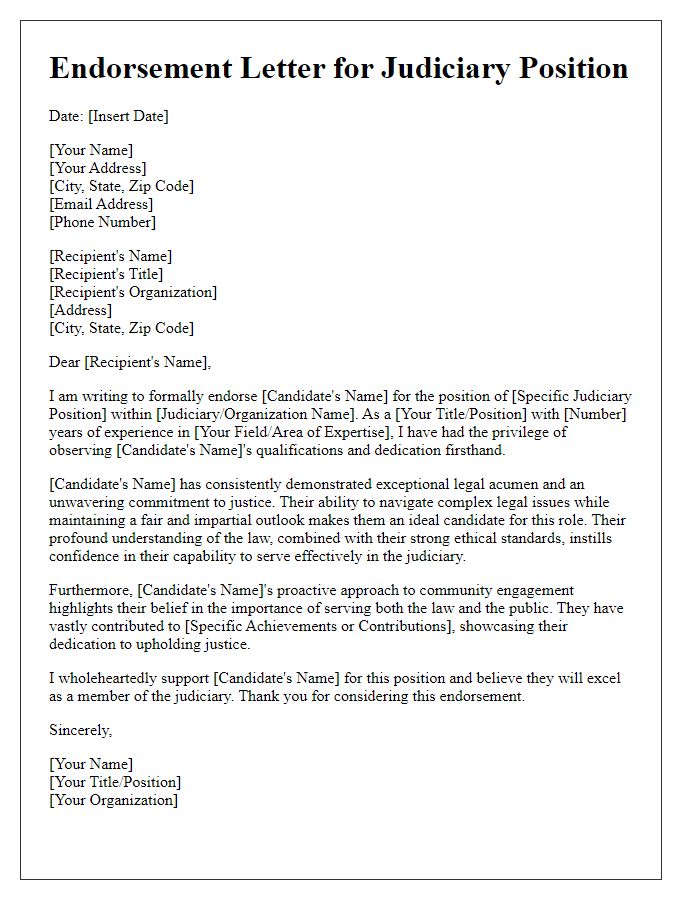
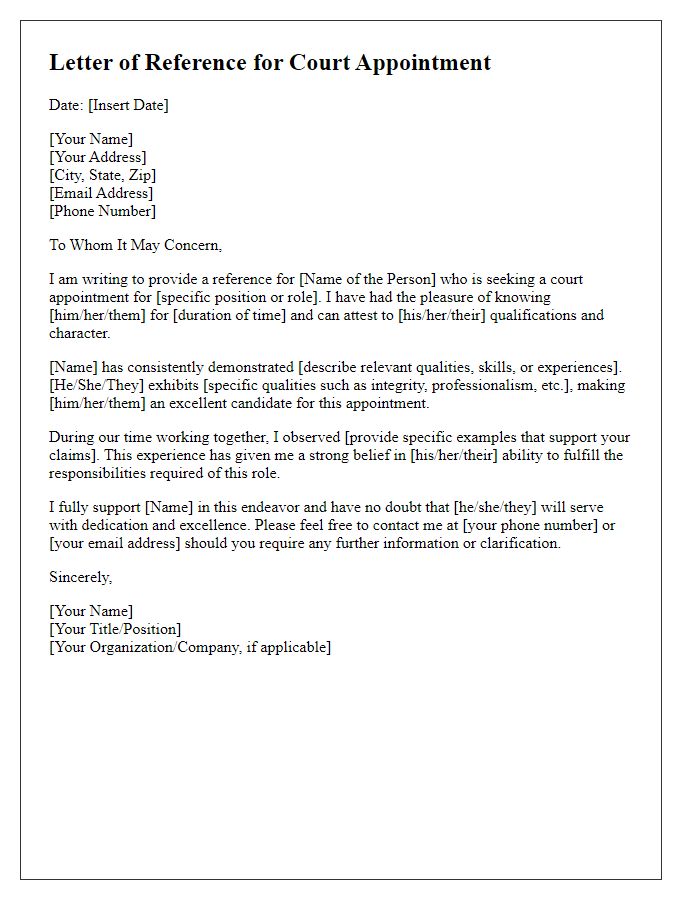
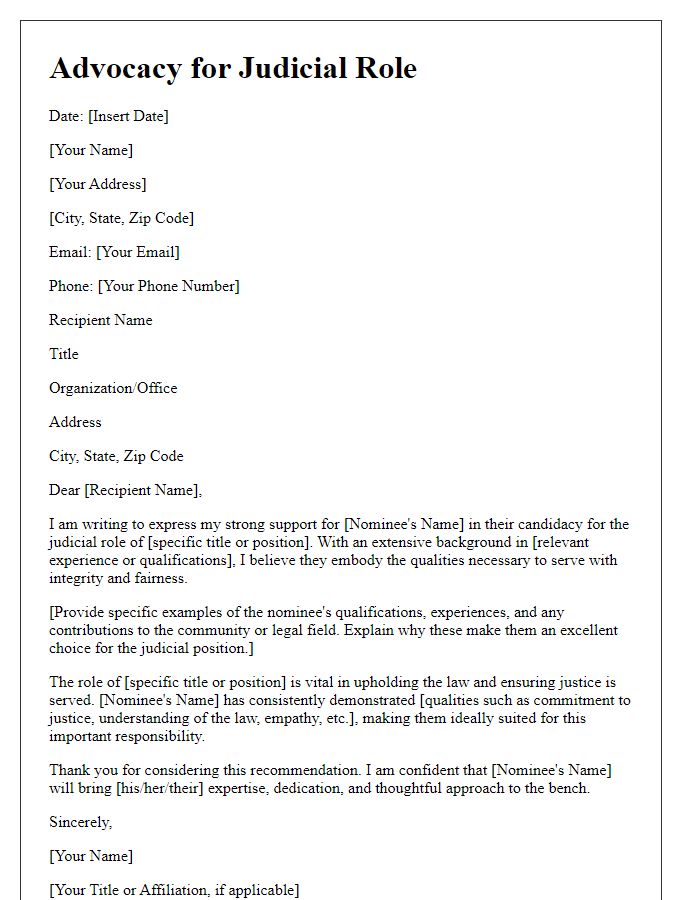
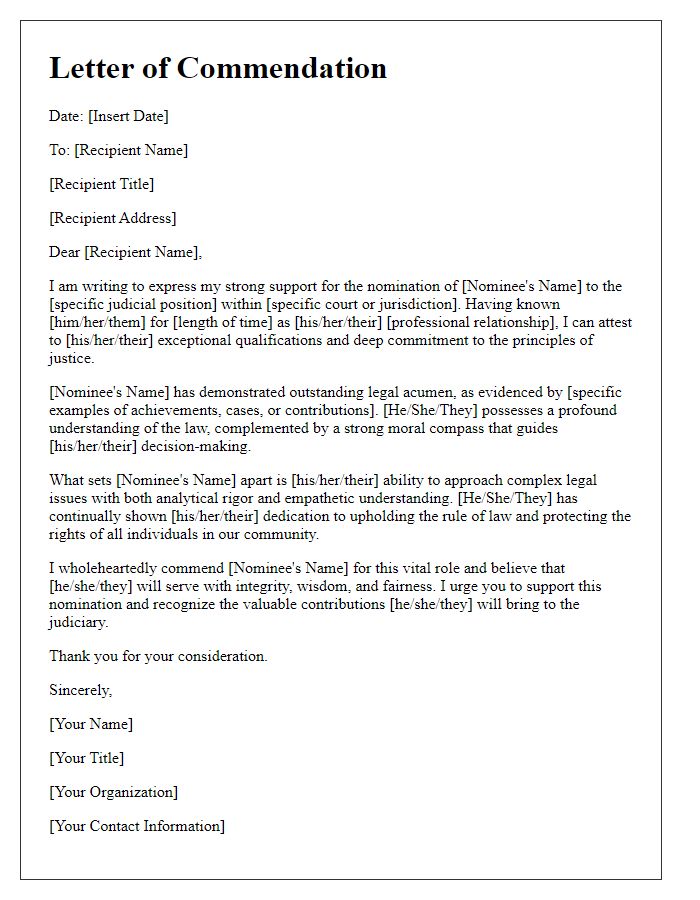
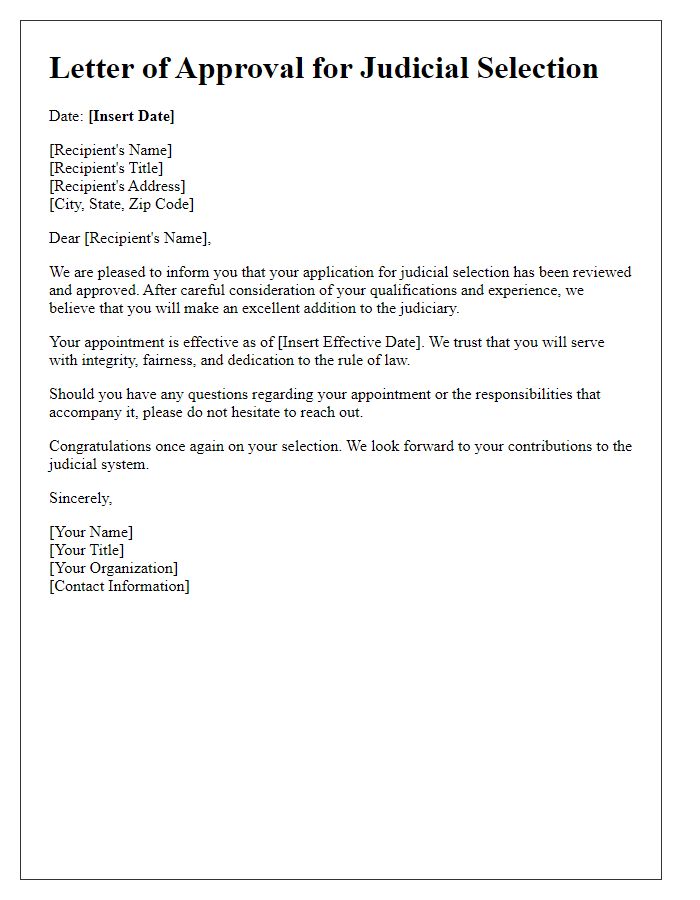
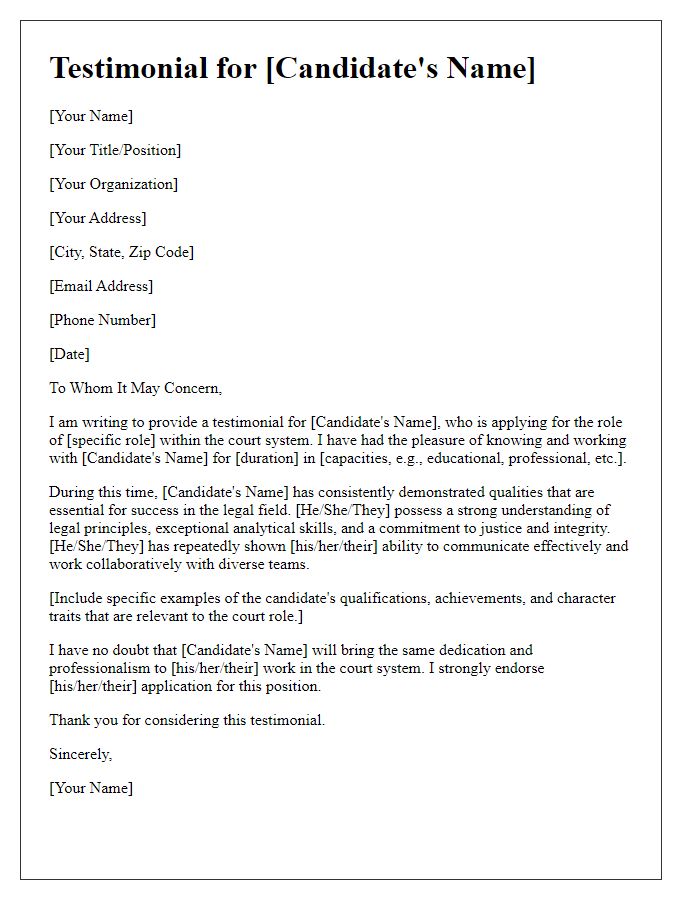
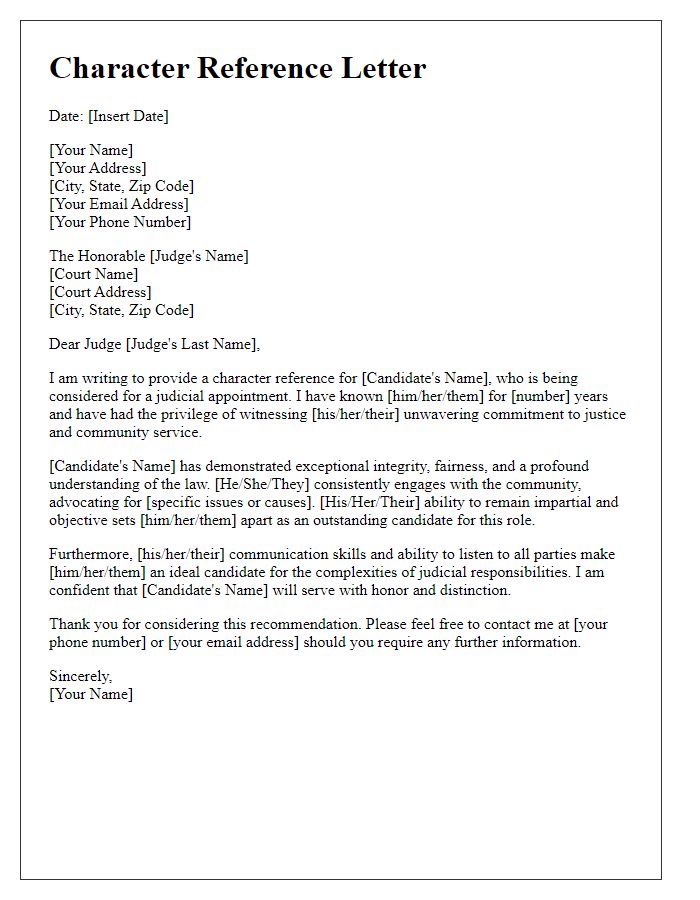
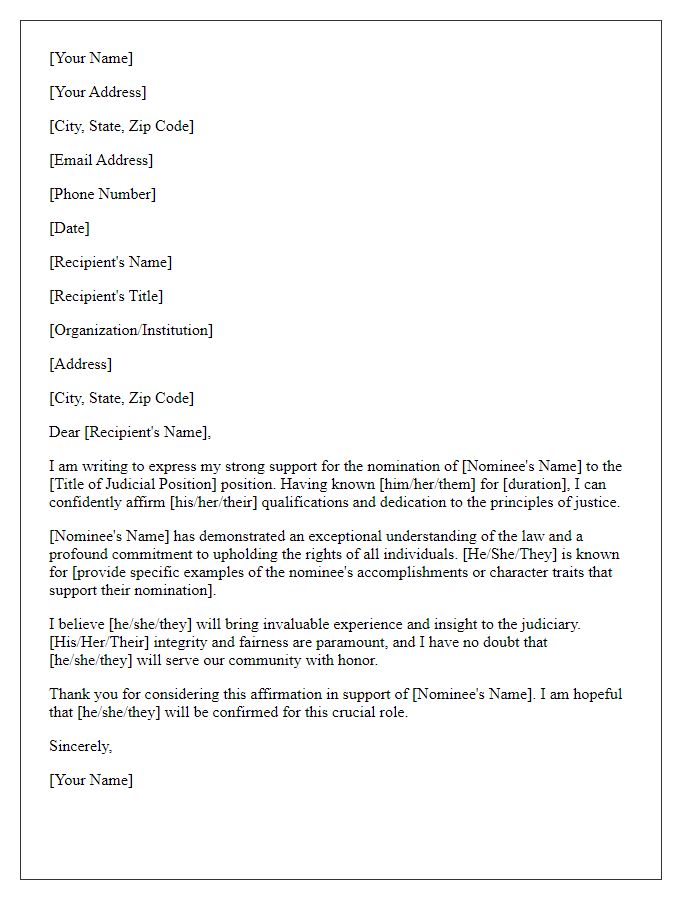


Comments